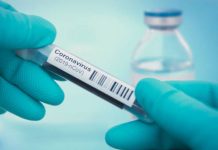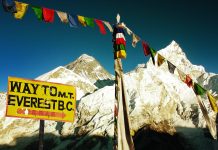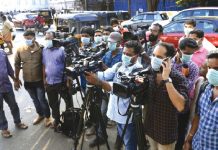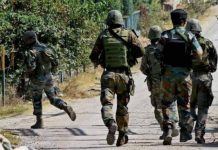The two-part BBC documentary titled “India: The Modi Question” has sparked a fresh row and has put PM Modi in a spot at a time when he has to lead presidency of G-20 nations, with his government coming under a cloud for alleged marginalisation of Muslims, writes Mudit Mathur
The two-part British Broadcasting Corporation’s (BBC) documentary titled “India: The Modi Question” is being extensively seen and reported world over, particularly among the overseas Indian community. The documentary has brought back the ghost of 2002 Gujarat riots to haunt Prime Minister Narendra Modi at a crucial timing when he has to lead presidency of G-20 nations, being a world leader of largest secular democracy, amid charges of marginalisation of Muslims, coincided with aggressive propping up of Hindu majoritarianism – “New India”.
The BBC report triggered intensive reactions over controversies surrounding Modi across the world and particularly in India where clashes are being reported after imposition of ban by the government over its screening and sharing on social media soon after it was screened and shared in India. Many opposition leaders, journalists, student bodies and activists continued sharing its links on social media defying ban order.
The government of India invoking emergency powers, ordered “YouTube” and “Twitter” to block airing of videos and all tweets sharing first and second episodes of the BBC documentary, titled “India: The Modi Question” – labelling it as “a propaganda piece designed to push a particular discredited narrative which lacked “objectivity” and reflected a “colonial mindset”. Denying the charges, the BBC, the UK state broadcaster, stated that its documentary on Modi was “rigorously researched according to highest editorial standards”. The documentary examines the controversies surrounding Prime Minister Narendra Modi’s leadership ever since 2002 Gujarat riots and his emergence at national and global stage amid successive ethnic conflicts in India.
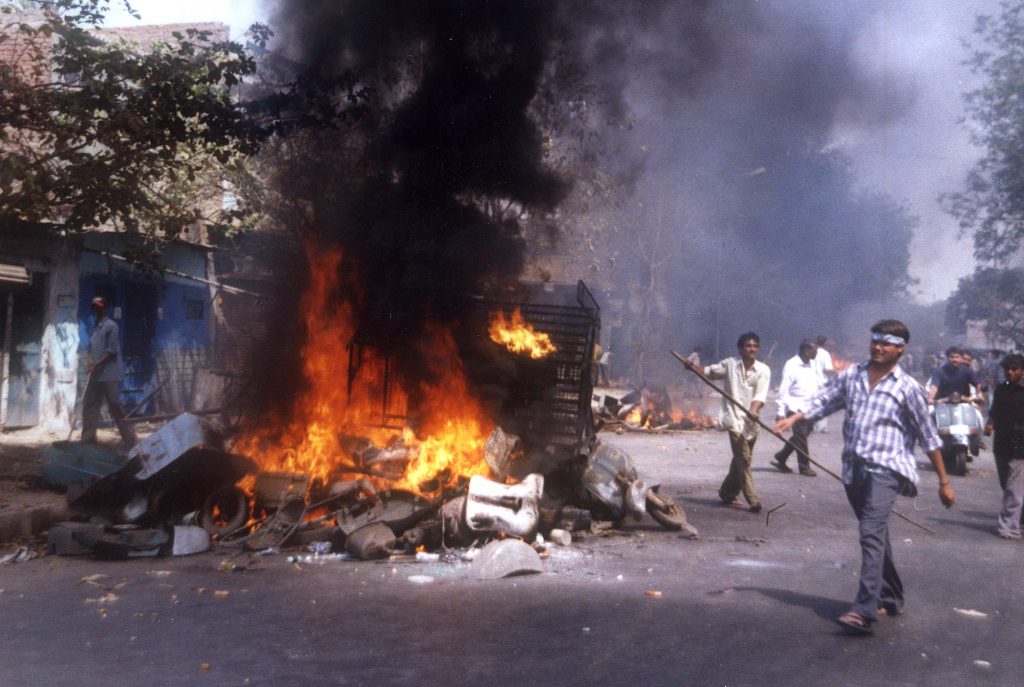
The documentary airing abroad revealed for the first time about the existence of a hitherto classified British foreign ministry report into the deadly 2002 communal riots that resulted in killing of around 2000 people in the riots, much more than the official figures of 1000. While 138,000 people were displaced from their homes and were living in 70 refugee camps of which over 100,000 were Muslim.
The UK government report said the events had “all the hallmarks of an ethnic cleansing”, said Jack Straw in the documentary, who was the UK’s foreign secretary at the time of the violence. “These were very serious claims – that Chief Minister Modi had played a pretty active part in pulling back the police and in tacitly encouraging the Hindu extremists,” Straw observed. “That was a particularly egregious example.” Yet, the UK foreign office has not commented on such exposures in documentary.
“What we did was establish an inquiry and have a team go to Gujarat and find out for themselves what had happened. And they produced a very thorough report,” Straw said in an interview in the documentary. The report also claimed there was widespread rapes of Muslim women during the 2002 violence. It added that the riots’ objective was to “purge Muslims from Hindu areas.” In 2013, the UK ended a 10-year boycott of Modi over the 2002 riots wherein three British citizens were also killed. Many foreign governments, including the United Kingdom, stopped diplomatic engagements with Narendra Modi whereas the United States imposed a travel ban on him.
Straw, who was the British foreign secretary under Labour Prime Minister Tony Blair from 2001 to 2006, said, quoting 2002 Gujarat riots, “I was very worried about it. I was taking a great deal of personal interest, because India is a really important country with whom we have relations. We had to handle it very carefully.” Straw was the Labour MP from 1979 to 2015 for Blackburn, which has a large Pakistani-origin population.
“What we did was to establish an inquiry and have a team go to Gujarat and find out for themselves what had happened. And they produced a very thorough report. It was very shocking. These were very serious claims that chief minister Modi had played a pretty active part in pulling back the police and in tacitly encouraging the Hindu extremists,” Straw was quoted as alleging in the documentary.
On the issue of sending a British inquiry team of diplomats, the former Foreign Secretary of India, Kanwal Sibal clarified in the media, “I was FS during that period. I am aware of the mischief by the UK mission. Sent their diplomat to Gujarat and circulated a highly slanted ‘report’ to EU envoys in Delhi. I was informed by an EU envoy which prompted me to issue a warning to missions in Delhi to not interfere in our internal affairs.”
However, commenting on the documentary, the British Prime Minister Rishi Sunak said that he does not agree with the “characterisation” made by Imran Hussain, who raised the question about Modi’s role and alleged complicity calling the riots “ethnic cleansing”. “The UK government’s position on this has been clear and long-standing and has not changed. Of course, we don’t tolerate persecution anywhere but I’m not sure I agree at all with the characterisation,” Sunak remarked.
Earlier in the House of Commons, Imran Hussain, the Pakistan-origin Labour MP from Bradford East, confronted Rishi Sunak: “Last night, the BBC revealed that the Foreign, Commonwealth and Development Office knew the extent of Narendra Modi’s involvement in the Gujarat massacre that paved the way for the persecution of Muslims and other minorities that we see in India today.”
Modi was the chief minister of the state of Gujarat when it was gripped by communal riots that left more than 1,000 people dead – most of them Muslims. The violence erupted after a train carrying Hindu pilgrims caught fire, killing 59 in Godhra. Accused of failing to stop the rioting, Modi denied the accusations and was exonerated in 2012 following an inquiry by India’s top court that found no evidence against him. This paved the way for Modi to become Prime Ministerial nominee for 2014 elections. Another petition questioning his exoneration was dismissed by apex court last year.
Modi has defended his handling of the worst religious violence in post-independent India and has refused to apologise. In the documentary, he told the BBC journalist that the police under him did “excellent work” to control the violence. “He [Modi] struck me as a very charismatic, very powerful and quite menacing figure,” reminisced Jill McGivering in the documentary, who interviewed Modi 21 years ago in 2002 for the BBC while covering reactionary riots unleashed in Ahmedabad post-Godhra incident after 59 Hindu pilgrims were burnt alive in four coaches of Sabarmati Express who were returning home from Ayodhya.
The documentary also contains clippings of a brief excerpt from an old interview Modi gave to Jill McGivering in which he dismissed the allegations against him. Refuting that people were living in fear, he countered, “I think you have to correct your information first. The state is very-very peaceful.” On the question of Muslims still feeling terrified, Modi replied, “I’m not agree(ing) with your analysis, I’m not agreeing with your information. This (is) absolutely misguided information to you, from where you have pick(ed) up this type of garbage, I do not know.” On the accusation of not doing enough to protect Muslims, Modi replied: “These are all false propaganda made by our opponents and you are also captive of false propaganda.” He told her: “Don’t please try to preach to us human rights. We know what human rights are. You Britishers should not preach to us human rights.” Modi admitted his weak area too saying, “Yes, one area where I was very-very weak was how to handle the media.”
Media reports about BBC documentary depicts how several Gujarat BJP leaders and their supporters were handed lengthy jail terms for their involvement in the violence but many of them are now out on bail and 11 men accused of gang rape were released by BJP-ruled Gujarat government last year. Rights campaigners and officials who helped fight justice for the riot victims have had cases slapped against them, some of them jailed. Since Modi became prime minister in 2014, the country has seen increased attacks against Muslims, who comprise about 15 percent of India’s 1.4 billion population.
The spokesperson of the Ministry of External Affairs, Arindam Bagchi in response to questions at the media briefing, said: “Do note that this (the documentary) has not been screened in India. So, I am only going to comment in the context of what I have heard about it and what my colleagues have seen. The bias, the lack of objectivity, and frankly a continuing colonial mindset, is blatantly visible. If anything, this film or documentary is a reflection on the agency and individuals that are peddling this narrative again.” “It makes us wonder about the purpose of this exercise and the agenda behind it and frankly we do not wish to dignify such efforts,” Bagchi added.
Multiple YouTube videos of the first episode of the BBC documentary, India: The Modi Question, and more than 50 tweets with links to the YouTube videos were ordered to be taken down, Kanchan Gupta, senior adviser at the Ministry of Information and Broadcasting, tweeted. He said that the content was blocked using the emergency powers under the IT Rules, 2021. “Both @YouTube and @Twitter have complied with the directions,” he tweeted.
On the other hand, the BBC, the UK state broadcaster, in its communique claimed, “The documentary was rigorously researched according to highest editorial standards”. “The documentary series examines the tensions between India’s Hindu majority and Muslim minority and explores the politics of India’s PM Narendra Modi in relation to those tensions. This has been the source of considerable reporting and interest both in India and across the world in recent years,” BBC communique added.
“A wide range of voices, witnesses and experts were approached, and we have featured a range of opinions – this includes responses from people in the BJP. We offered the Indian Government a right to reply to the matters raised in the series – it declined to respond.” The BBC claims that more than 30 people in India declined to take part in the series because of fears about their safety.
“Where events involve British nationals, we naturally have an interest both in the provision of consular assistance and in trying to ascertain what happened through police and diplomacy.” Three British nationals from Yorkshire — Imran and Shakil Dawood, and Mohammed Aswat — were killed by rioters when they crossed into Gujarat from a trip to the Taj. A survivor, who was 18 at the time, was interviewed for the programme.
The BBC set out what was covered in part one: “Narendra Modi is the leader of the world’s largest democracy, a man who has been elected twice as India’s Prime Minister and is widely seen as the most powerful politician of his generation. Seen by the West as an important bulwark against Chinese domination of Asia, he has been courted as a key ally by both the US and the UK.
The former member of the Rajya Sabha and national council member of BJP, Swapan Dasgupta participated in the BBC documentary defending Modi, who claimed, “Agenda was to destroy Narendra Modi politically — the agenda was explicitly political.” He also pointed out — as did the programme — that Modi was cleared by the Supreme Court: “The Supreme Court gave a judgment (which) actually brought the whole matter to a closure — the closure was necessary.”
The overseas media reports reveal that in the second part of BBC documentary further analyses deeper into the agenda of Modi government, showing strained relationship with Muslim minorities amid growing incidents of mob lynchings, reading down of Article 370 in Kashmir, raking up of issues of illegal migrants in Assam with introduction of National Register of Citizenship (NRC) and communal violence in Delhi over Citizenship Amendment Act (CAA). Over three and a half years between May 2015 and December 2018, cow vigilantes “killed 44 people and injured around 280 in cow-related violence, out of which most victims were Muslim.”
Three years after coming to power in 2014, widepread cases of lynchings against Muslims took place allegedly in name of the Pink Revolution. The “Pink Revolution ” expression was used by Modi addressing his concerns over cow slaughtering adversely impacting livestock in the villages. Many states made cow slaughtering illegal, as cows are considered sacred by Hindus.
Documentary features testimony of Marriyam Ansari of Jharkhand whose husband Alimuddin was mob lynched on the suspicion of carrying beef. She recalled how BJP spokesperson Nityanand Mahato was found guilty of Alimuddin’s murder, and sentenced to life in prison. “But one of Modi’s ministers helped him and the other convicted men to secure bail bearing all their legal expenses and welcomed them with a garland of flowers after they were released on bail,” Marriyam added. “They are the rulers of the whole country and when rulers of the country support these people, we poor people can do nothing,” pleads helpless Marriyam Ansari, wife of Alimuddin in the film. Over four years later, the men are still free.
Many opposition leaders had termed the move as “censorship”. Commenting over the controversy, the Congress leader, Rahul Gandhi said during his Bharat Jodo Yatra: “If you have read our scriptures, if you read Bhagwat Gita or the Upanishads… you can observe that the truth always comes out. You can ban… you can suppress the press… you can control the institutions, you can use CBI, ED (Enforcement Directorate) and all the stuff but truth is truth.” “Truth shines bright. Truth has a nasty habit of coming out. So, no amount of banning, oppression and frightening people is going to stop the truth from coming out,” he added.
TMC MP Mahua Moitra and Derek O’Brien shared the link to the controversial documentary and vowed to fight against “censorship” which was removed by Twitter. Senior Congress leader AK Antony’s son Anil Antony quit all party posts blaming “growing intolerance and sycophancy in the organisation”. He tweeted condemning a BBC documentary on Prime Minister Narendra Modi calling it “a dangerous precedent.”
Campuses are witnessing a battle over the BBC documentary, with some students seeking to screen it while being met with warnings from university authorities, power cuts, Wi-Fi disruptions, police detentions, and retaliatory screenings of The Kashmir Files by RSS student arm, ABVP. Reports of clashes have been reported from JNU and Jamia in Delhi where police detained over a dozen of students. Punjab University students have also been stopped from screening it.
Media groups say the Indian government is abusing its emergency powers under the 2021 IT Rules by blocking a BBC documentary. The International Press Institute (IPI) on Wednesday expressed its “alarm” regarding authorities invoking emergency laws to block the documentary, saying that the country’s 2021 IT Rules allow the government “expansive and unchecked powers” to control and censor online content and news outlets.
“The Modi government is clearly abusing emergency powers under the IT Rules to punish or restrict any and all criticism of its policies,” said Amy Brouillette, the IPI Director of Advocacy. The Committee to Protect Journalists (CPJ) said that ordering social media platforms to block the documentary constitutes “an attack on the free press that flagrantly contradicts the country’s stated commitment to democratic ideals”.
The Indian diaspora in the UK will stage a protest outside the BBC headquarters on 29th January in London to “raise awareness about the nefarious anti-India reportage” in its documentary on Prime Minister of India, Narendra Modi. A new online petition has demanded an independent probe into a “serious breach” by the BBC in its duties as a public broadcaster in the U.K. over the controversial documentary series on Prime Minister Narendra Modi.








